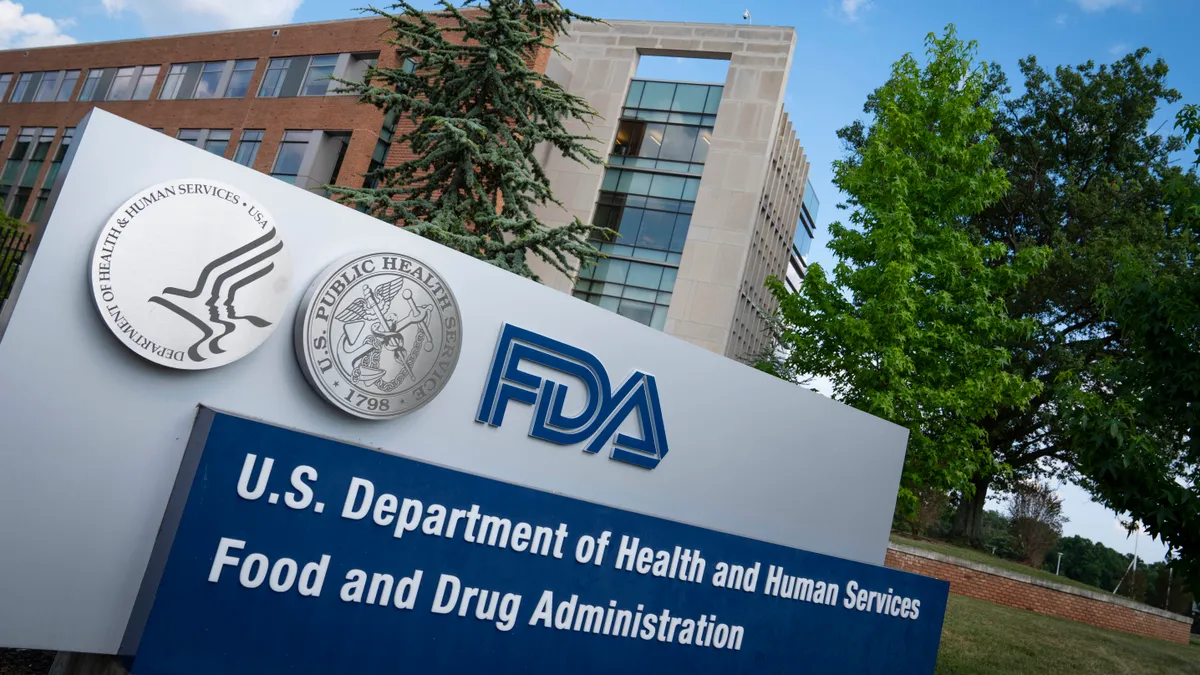December is often a busy month at the FDA as the agency moves to fit in several drug approvals before the end of the year. In 2021, for example, the agency gave the go-ahead to four novel therapies between Dec. 17 to Dec. 27.
So far in 2022, the FDA has approved 30 novel drugs — while short of last year's 50, there is still time for several more green lights in the coming month.
What new launches could we see before the end of the year? Here, we're taking a look at some of the Prescription Drug User Fee Amendments, or PDUFAs, that are targeted for December. The regulatory agency sets these as target decision dates as they conduct the review of a drug. And because the FDA sometimes notches approvals ahead of time, we're also exploring some January PDUFAs that could come in before the new year begins.
Dec. 14: Mirati Therapeutics' and Zai Lab's adagrasib
Mirati and Zai Lab's adagrasib is designed to treat patients with non-small cell lung cancer that harbors a KRAS mutation. KRAS is a relatively new target in cancer, and adagrasib has shown positive results in a mid-stage study and the company is conducting a phase 3 trial.
The FDA is reviewing the drug on the accelerated approval timeline and has also granted it a breakthrough therapy designation.
Dec. 23: Coherus BioSciences and Shanghai Junshi Biosciences' toripalimab
Coherus and Junshi announced this year that the FDA is reviewing toripalimab for patients with an aggressive form of cancer called nasopharyngeal carcinoma. The review follows a resubmission after the agency was unable to complete inspections of the manufacturing facilities due to COVID-19 travel restrictions. The companies said they plan to launch the drug in early 2023 if the approval goes through.
That's not all Coherus has planned for next year — the company is one among several biosimilar makers planning to launch a copycat of AbbVie's Humira, a potentially lucrative position that could change the dynamics of the industry.
Dec. 27: Gilead Sciences' lenacapavir
Gilead's newest antiviral treatment lenacapavir is meant to treat patients with multi-drug resistant HIV-1 infections. The FDA lifted a clinical hold originally placed on its development due to the plastic composition of vials the company was using to contain the drug. After a review of Gilead's alternative glass drug delivery plan, the agency allowed clinical studies to continue.
Lenacapavir has a breakthrough therapy designation and previously received a complete response letter from the FDA due to the manufacturing issue.
Dec. 28: TG Therapeutics' ublituximab
TG Therapeutics has shown positive phase 3 results for ublituximab in patients with multiple sclerosis and is hoping to have the drug approved just before the end of the year.
The monoclonal antibody faced a three-month delay ahead of the current PDUFA date, and the company could use a win — TG was forced to pull its previous lymphoma drug Ukoniq following reported deaths in a post-market trial.
Dec. 31 (or Jan. 15, 2023): Acer Therapeutics' ACER-001
Coming in just under the wire on New Year's Eve, the potential approval of Acer's urea cycle disorder drug ACER-001 could be one of the final green lights of 2022. However, the company more recently announced in a release that the PDUFA had been moved to January amid an inspection issue at a third-party packaging manufacturer facility. The issue was resolved and the agency did not cite any other approvability issues, the company said.
ACER-001 is designed to compete against other urea cycle disorder drugs like Buphenyl from Horizon Therapeutics. Unlike Buphenyl, which has drawn complaints due to a bitter taste, ACER-001 has a polymer coating that can mask any bad flavors.
Select PDUFAs into January 2023
Some of the most anticipated approvals in January could also come in ahead of time, including Biogen and Eisai's Alzheimier's drug lecanemab with a PDUFA of Jan. 6, 2023. Seagen is also looking for approval of colorectal cancer treatment tucatinib by Jan. 19, Ionis Pharmaceuticals is seeking the go-ahead for its ALS drug tofersen by Jan. 25 and Merck and Co. could see yet another approval for Keytruda, this time for non-small cell lung cancer.













